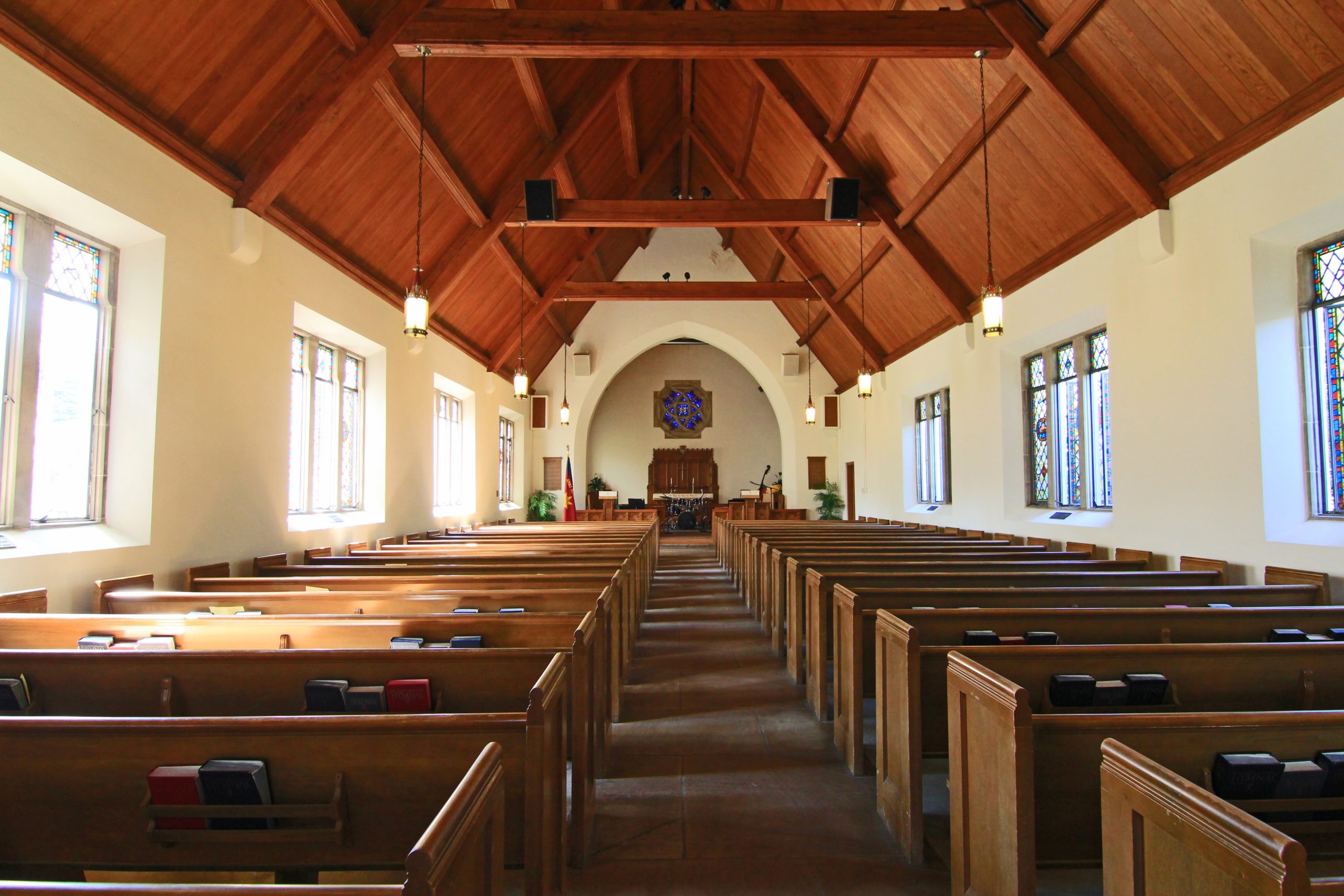Introduction
I have never been active on LinkedIn until last year. Sometimes last year, I came to recognize the importance of LinkedIn to my work. I created a new account and became active. LinkedIn is a very interesting platform. It challenges and encourages you to be better in your career.
Many people on the platform inspire me. Through their content, stories, and dedication to see others advance, I consider them as mentors even though I have not exchanged private messages with them on the platform. I just observe from far away and learn from them.
One of those people is Nwaka Osakwuni. He is a professional resume writer (founder of Procivi Group, and a “serial entrepreneur.” Nwaka is an enthusiastic and visionary man. I am grateful to have him as one of my connections.
However, on March 15, I was going through my LinkedIn feed when I saw a post from him. It was an unusual post since I hardly find posts of that nature on LinkedIn. It was a link to an article he penned on Medium – “The Charade, Myth, And Personal Perspective of This Movement Called Christianity.”
Since LinkedIn is a career-focused platform, I decided to bookmark the article on Medium and read it later. It was an emotional read. Before reading the article, I felt it would be a pure intellectual opposition to Christianity – things like evolution, cosmology, naturalism, etc. It was different. This is borne out of years of personal experience.
Meet the Man
From what I read in the article, I want to try to paint a picture of Nwaka’s experience. (You should read his article)
A devoted Christian mother (his father got tired of Christianity along the way) raised him. He grew up in a Christian home (and church) where he learned Christian values and morals, “the rules,” as he will put it. After Secondary School, he became convinced that he needed to go to God in prayers to find solutions to his problems. He needed to become closer to God and hear from him. He became “born again.” Nwaka became a youth leader and a member of the “prayer warriors.” He did not miss any revival program. In his words, “I preached, I prayed- fervently, I fasted, I showed love, I did them ALL.”
However, two things happened at this time that began to change his mind. First, “life just kept getting harder.” Second, “I began to see more evidence in knowledge gained or to put it plainly, ‘science’”
He also recounts how he focused his time trying to prove he was worthy in God’s sight. He prayed and fasted, pursued holiness, had dreams and revelations, interpreted dreams, fought spiritual warfare, spoke in tongues, and wrestled with demons.
The tipping point for him was the load of trials that made him decide that Christianity does not work. He couldn’t get a job; he was in lack, no one to help him make advancement as a young man. His niece/nephew died 72 hours after birth. His best friend got depressed. It turned to impulsive aggression, which led him to a mental hospital and a year on medications. His brother had kidney failures. In all of these difficulties, they prayed, fasted, visited churches but all to no avail. He concluded that Christianity doesn’t work.
However, instead of ending his life, he decided to “try the other side of life.” He began to see life from a different perspective. He noticed that when he didn’t pay tithe, nothing happened (no cankerworms). When he didn’t pray in the night, there were no demons. When he stopped believing in witches and wizards, he stopped having bad dreams or seeing some animals as tools of witches. When he stopped seeking “revelations,” he realized that there are good natural explanations for dreams.
It was at this time that things began to change. He started making money, starting businesses and making waves in life (I can testify).

My Approach
What I want to do in this article is to draw out some of the points Nwaka made and offer a biblical response.
My purpose here is to:
- Identify areas where his experience of Christianity is different from historic Christianity
- Identify where he misunderstood some essential points and doctrines of the Christian Faith
- Offer a biblical explanation of some of the issues he raised
My goal is to:
- Hopefully, get Nwaka to consider true historic Christianity
- Encourage people to let go of some aspects of present-day practice of Christianity in some circles that are unbiblical and misrepresent God
- Prevent others from rejecting Christianity because of false beliefs and expectations.
Christians Do Suffer
One of the damages that the health and wealth prosperity gospel has done to Christianity today is that it has produced believers who are not prepared to suffer. It gives us a false view of reality and promises us that as long as we are believers, everything will work out well. We will be healthy and wealthy, and life will go smoothly.
How different is this from what the New Testament itself teaches us.
In Philippians 1:29, Paul reminds us that “it has been granted to you on behalf of Christ not only to believe on him but also to suffer for him. ” In his letter to the Romans, Paul reminded us that we not only rejoice in the hope of glory, but because of that hope of glory, we “rejoice in our sufferings.” (Romans 5:3) James, writing to the twelve tribes scattered abroad, admonished them to consider it pure joy when they “face trials of many kinds.” (James 1:2).
The whole purpose of Peter’s two epistles is to encourage suffering Christians. In the first chapter of the first epistle, Peter urged them to rejoice even though they “had to suffer grief in all kinds of trials” (1 Peter 1:6). In the second chapter, he reminded them that Christ suffered, and so they “should follow in his steps” (2:21). In case all of this surprised them, he encouraged them not to be “surprised at the painful trial you are suffering, as though something strange were happening to you.”
Jesus himself reminded his disciples that in the world they would have troubles. The only encouragement is that he has overcome the world (John 16:33). In different places (2 Corinthians 4, 6, 10, etc.), Paul gave us graphic details of his sufferings. Paul and his ministry partners had to go through different churches collecting money for the poor Christians in Jerusalem. (1 Corinthians 16:1-4, Romans 15:25-31, Galatians 2:10, 2 Corinthians 8 and 9).
We live in a fallen world. Sin brought suffering and evil. As believers, we are also part of this fallen creation that is groaning for redemption. Many believers have died untimely. Many have lost children at a young age. Many have suffered from poverty. We are part of this fallen creation, and God never promised us that we would be immune from these sufferings.
Our ultimate hope is in the restitution of all things (Acts 3:21) when the creation will be finally delivered from its bondage. It is the recreation of all things that we anticipate. Paul was emphatic in this regard. In Romans 5, he points us to the hope that will not disappoint (verse 2-4). In light of our light and momentary afflictions, he reminds us of the eternal glory that far outweighs them all (2 Corinthians 4:16-18). We can rejoice in trials because the sufferings of this life cannot be compared to the glory which shall be revealed in us (Romans 8:18).
We look forward to the new heaven and the new earth where God will wipe away all tears, and there will be “no more death or mourning or crying or pain, for the old order of things has passed away.” (Revelation 21:4)

All Things Work out For Good, but what is That Good?
However, we must note that the sufferings of believers are different from the sufferings of unbelievers. This is true in three ways:
- We suffer with hope (Romans 8:18, 2 Corinthians 4:16-18, 2 Timothy 2:12, etc.)
- We do not suffer for wrongdoing (this is the ideal): Peter labored to make this point in his epistles. We are to suffer while doing right. The sufferings of believers should be sufferings in the path of obedience to God, not disobedience. (1 Peter 2:19,20; 3:14; 4:14-16)
- God orders our sufferings
It is now that point that I seek to emphasize. God orders all of the sufferings of a believer. This means none of our sufferings in this world is meaningless. God is doing something in us through every iota of our sufferings.
Paul made this point in Romans when he insisted that sufferings produce perseverance, perseverance produces character, and character produce hope (5:4). James also insists that the testing of our faith produces perseverance, which then makes us complete and mature (1:4). While suffering makes the outward man perish, it renews the inner man (2 Corinthians 4:14). Peter insists that suffering helps us in the battle against sin (1 Peter 4:1,2).
The writer of Hebrews also informs us that some sufferings are the Lord’s discipline. God disciplines his children (and in case that shocks us, he reminds us that responsible earthly fathers discipline their children). As God’s children, he disciplines us. He rebukes us. But the writer makes this critical point (lest we forget) – the Lord disciplines those he loves, and he punishes everyone he accepts as a son (12:6). “But God disciplines us for our good, that we may share in his holiness.” (Hebrews 12:10)
However, he does not make the point that all of our sufferings is God’s discipline. Most of our sufferings are because we live in a fallen world. Whether they are the Lord’s discipline or part of our lives in a fallen world, all of our sufferings are ordered and used by God for us. No child of God suffers outside of the knowledge, will, and purpose of God.
God delivers us from many sufferings. He protects us from many troubles that our enemy would have brought to us. He is the sovereign God, and Satan can do nothing to us outside of his will (Job 1, 2). If only God can open our eyes as he did for Elijah’s servant, we will see the hosts of heaven who protect and shield us from the awful purposes of the enemy (2 Kings 6). God also protects us from many troubles that could befall us from living in a fallen world. He delivers us from many problems and afflictions. He protects us from situations that could have harmed us – sicknesses, natural disasters, slander, accidents, etc.
However, God, in His sovereign will and purposes, also allows us to suffer. Sometimes he does not hold it back. The assurance that the scriptures give to us is that when he does not hold it back, it is for our good. The second assurance is that when he does not hold it back, he is present with us (Isaiah 43:1-3)
One of the famous passages in scriptures is Romans 8:28. “And we know that in all things God works for the good of those who love him, who have been called according to his purpose.”
In everything, God works for our good. In all the trials and sufferings of our lives, God is working for our good. What is that good? It is that we will be conformed to the image of his Son (verse 29). Every suffering of the believer is moving us closer to conformity to Christ. He is building our character. He is developing our faith. He is conforming us to Christ. In all the hardest times of our lives, God is present; he will hold us and strengthen us as he works it all out for our good. None of our trials is a waste. They are all purposeful.

Praying to a Sovereign God
How then should we pray in our trials?
This is one point that caused significant troubles for Nwaka. How do we pray to a sovereign God amidst trials?
The prayer of Jesus in the garden of Gethsemane teaches us how we should pray to a sovereign God. Jesus, at that time wanted deliverance from the cup. However, he submitted to God’s will. (Mathew 26:39). This sort of prayer by Jesus should not be new to us. Was he not the one who told us in the Lord’s Prayer to say, “your will be done on earth as it is in heaven.” (Mathew 6:10).
One of my favorite prayers in the New Testament is in Mathew 8:2. The leprous man approached Jesus and prayed, “Lord, if you are willing, you can make me clean.” That prayer recognizes two things: God can do all things, and God has a will. If God wills a thing, he does it, and no force in heaven, earth, or hell can stand against him. However, because the God who is sovereign over the universe has a will, there are times when we don’t see answers to our prayers. However, Romans 8:28 and others remind us that he’s working all things to conform us to Christ- our good.
Like the three Hebrew boys, we know that our God can deliver us from the fire. Nevertheless, even if he does not, we will trust that he is working out all things for our good.
Nwaka approached prayer (and fasting, among others) without a recognition of this vital truth. Yes, God delivers us from so many troubles, but sometimes he walks with us through those troubles for our good. Yes, God answers our prayers and delivers, but sometimes he stays with us in those trials so that we can be conformed to Christ. Therefore, when in trials, pray, we must. We pray to God to deliver us from all sufferings and trials. We pray for him to remove the cup. However, we leave the result in his hands, knowing that whatever our God ordains is right.
There is a lot of emotion in all of these. God does not call us to be without feelings. We cannot read the Psalms or read Job and not feel the depth of emotions. We must come to God with all of our emotions amid sufferings. Nevertheless, in all of it, we learn to submit to a God who loves us, knows us, redeems us, and is working out all things for our good. We must pray. We must persist in prayer (an expression of trust). Sometimes what is needed is our persistence in prayer (Luke 18:7). This does not mean we pray once and assume it is not God’s will. We must persist in prayer (some persistence means years of prayer). However, we continue in prayer with a surrender to God’s sovereign will.
God does answer prayers. Our times of trials must never make us forget that. When we are in the dark, we must remember the place we last saw the light. Like the Psalmist (Psalms 77, 78,106,116,143), we must never forget all the multitude of times God intervened in answer to our prayers.
If, in all of these, there is a temptation to doubt his love, the cross of Christ is the answer. God left his own Son on the cross, choosing not to allow the cup to pass him over. He instead allowed him to drink the full measure of the wrath that is due our sin. He led his own Son as a lamb to the slaughter. The man of sorrows, acquainted with grief (Isaiah 53), paid the ultimate price for our redemption. If God will do that for us, can we ever believe that he hates us? No. Even when the circumstance threatens to drive us to that conclusion, the cross reminds us to cast our anchor on him.
“Who shall separate us from the love of Christ? Shall trouble or hardship or persecution or famine or nakedness or danger or sword? As it is written: “For your sake we face death all day long; we are considered as sheep to be slaughtered.” No, in all these things we are more than conquerors through him who loved us. For I am convinced that neither death nor life, neither angels nor demons, neither the present nor the future, nor any powers, neither height nor depth, nor anything else in all creation, will be able to separate us from the love of God that is in Christ Jesus our Lord.” (Romans 8:35-39)

Common Grace
The second point in Nwake’s article I will like to discuss is that relating to success.
Do we need God to succeed? Can an unbeliever achieve success? Do you need to worship and serve God tirelessly to be successful?
One way to begin is to remember that God causes his sun to shine and his rain to fall on the good and the evil (Mathew 5:45). God created this world. He sustains this world. He sends his good things to good people and bad people alike. James emphasizes that every good and perfect gift comes from the Lord (James 1:17). He is the one who “gives us rain from heaven and fruitful seasons, filling our hearts with food and gladness.” (Acts 14:17)
God gives talents, intelligence, strength, and many other graces to believers as well as unbelievers. This is what theologians call common grace. It’s also the reason why we have unbelievers who are kind, noble, patriotic, merciful, et al. While man is fallen, the image of God is still on us. Because of that image, an unbeliever can still be moral. God gives his good gifts to all so that some unbelievers can be tech gurus, business moguls, accomplished scientists, etc. Many people in the scriptures have complained to God about the prosperity of the wicked (Asaph in Psalms 73, Malachi in chapter 3).
Common grace means unbelievers can succeed in life. It implies an unbeliever can even be a better pilot or engineer than a believer. What God gives believers is special grace. It is the grace by which we come to know God in his word, receive salvation, receive adoption into God’s family, and become heirs of eternal glory. That grace makes the Spirit of God indwell us. That is the grace unbelievers do not have. This grace is unique to us.
Believers and Common Grace
However, when this special grace comes to us, it impacts everything we do, including all the things in the realm of common grace (work, leisure, competence, academics). We do all to the glory of God.
God gives the common grace of success to unbelievers. However, God uses means. Success does not happen apart from means. A man must be diligent and resilient (and other things that lead to success) to be successful. Unbelievers can be diligent and resilient. God also gives them the common grace of talents and abilities. With those two capacities, unbelievers can achieve earthly success.
It is the same for believers. God gives us talents and abilities. He works through the means of diligence and resilience (among others) to make us successful. However, that is common grace. He does it for believers and unbelievers alike. A believer can pray and fast for God to give him success because the special grace we receive makes us live life for the glory of God. We receive everything as coming directly from the hand of God. However, the unbeliever does not recognize the hands that give. He ascribes his success to himself or to chance.
However, while believers depend on God for success (and everything else that is common grace), we do our duties like everyone else. We want to receive our success as coming from the hand of God, but that does not lull us into indifference or insolence. The bible warns us against insolence and commands us to be diligent in our work. Therefore, as believers, we must follow all the rules of success that we have seen in the lives of those who have attained the success we desire. We must be hardworking and everything in that line. However, because we know the scriptures, we recognize that success only comes from the Lord. Whether it is a believer or an unbeliever that achieves that success, it comes from the Lord. The difference is – we believers receive these blessings as coming from the hand of God. Therefore, we are thankful (unlike unbelievers – Romans 1:21), and we seek to use our success to glorify him.
Believers cannot pray and fast their way to success. They must use the means that we have seen evident in the lives of all successful people. However, they do so dependent on God, receiving their success from him, and thanking him for all his good gifts. That is the difference. It is common grace. However, for believers, special grace makes us receive and use common grace in ways an unbeliever does not.
Common grace is also the reason why Nwaka’s point that “Pastors do go to the hospitals. Why don’t they pray to get well” does not work. God works through ordinary means. God provides food for every creature on earth. (Psalms 136:25) However, he does it through natural means. God does not rain manna from heaven, but he’s as much the provider when the farmer plants and harvests as when he rains manna from heaven. God created the world, he designed the laws of nature, and he gives the gifts and abilities through which we work the land. God does provide for his children through ordinary means. God is our healer. He heals us through the work of the doctors, or he heals us supernaturally. God is as much the healer when he heals supernaturally as when he heals through ordinary means. God is the creator of the world and the sustainer of the universe. God, in common grace, is the giver of the gifts and abilities that gave us modern medicine. Therefore, when God heals us, we can either receive that healing through ordinary means or if he decides, through supernatural means. This is historic Christian teaching.
Does Christianity Work?
So does Christianity work? Work for what?
If Christianity promised us we would not suffer, then if we suffer, it means Christianity does not work. If Christianity promised us total health and wealth, and we are sick or poor, then Christianity does not work. If Christianity promised to solve all our problems and we still encounter nagging problems, then Christianity does not work.
However, Christianity does not promise us any of that. It does promise that anyone who trusts in Christ will be saved. It promises that God will always be present with us. It promises that the Spirit of God will dwell in us. It promises that God will work all things for our good. He promises that our trials will conform us to Christ if we bear under the weight. It promises eternal life to all those who trust in Christ. It promises the restoration of all things – a new heaven and a new heart. It promises resurrection bodies.
Saying something does not work means we know what the thing should work for. We cannot hold God accountable for what he has not promised. We can only hold him accountable for his promises, and what we discover is that none of his promises has failed. The Character of God, the presence of the Spirit and the resurrection of Jesus gives us the confidence that his future promises will not fail. All of his promises are Yes and Amen in Christ. The scriptures are filled with instances of how God makes promises and fulfills them. No wonder Paul assures us that through the encouragement of scriptures, we will have hope (Romans 15:4). In judging if Christianity works, Nwaka fails to make this clarification. What has God promised? What is Christianity meant to work for?


